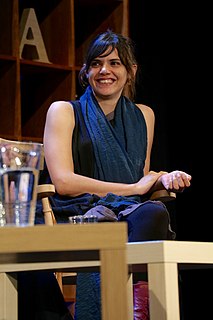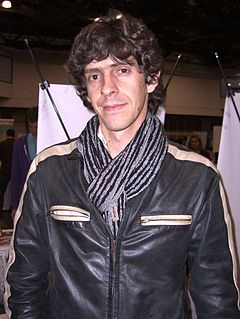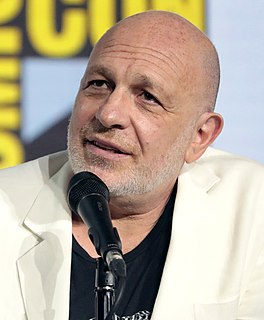A Quote by Valeria Luiselli
Cities have often been compared to language: you can read a city, it's said, as you read a book. But the metaphor can be inverted. The journeys we make during the reading of a book trace out, in some way, the private spaces we inhabit. There are texts that will always be our dead-end streets; fragments that will be bridges; words that will be like the scaffolding that protects fragile constructions.
Related Quotes
A book is a map. There will be times in your life when you will feel lost and confused. The way back to yourself is through reading. There is not a problem in existence that has not been eased, somewhere and at some time, by a book. I want you to remember that.The answers have all been written. And the more you read, the more you will know how to find your way through those difficult times.
If we don't understand how metaphor works we will misunderstand most of what we read in the Bible. No matter how carefully we parse our Hebrew and Greek sentences, no matter how precisely we use our dictionaries and trace our etymologies, no matter how exactly we define the words on the page, if we do not appreciate the way a metaphor works we will never comprehend the meaning of the text.
I read everything. I'll read a John Grisham novel, I'll sit and read a whole book of poems by Maya Angelou, or I'll just read some Mary Oliver - this is a book that was given to me for Christmas. No particular genre. And I read in French, and I read in German, and I read in English. I love to see how other people use language.
Chrysostom, I remember, mentions a twofold book of God: the book of the creatures, and the book of the scriptures. God, having taught us first of all by his works, did it afterwards, by his Words. We will now for a while read the former of these books; 'twill help us in reading the latter. They will admirably assist one another.
If you are reading in order to become a better reader, you cannot read just any book or article. You will not improve as a reader if all you read are books that are well within your capacity. You must tackle books that are beyond you, or, as we have said, books that are over your head. Only books of that sort will make you stretch your mind. And unless you stretch, you will not learn.
Often the adult book is not for you, not yet, or will only be for you when you're ready. But sometimes you will read it anyway, and you will take from it whatever you can. Then, perhaps, you will come back to it when you're older, and you will find the book has changed because you have changed as well, and the book is wiser, or more foolish, because you are wiser or more foolish than you were as a child.
Adaptation is always the same process for me, which is some version of throwing the book at the wall and seeing what pages fall out. It is trying to imagine, remember the story, read it, put it down, and then write sort of an outline without the book in front of you with some hope that what you like about it will be filtered and distilled out through your memory and then that will be similar to what other people like about it.
I want to write something so simply about love or about pain that even as you are reading you feel it and as you read you keep feeling it and though it be my story it will be common, though it be singular it will be known to you so that by the end you will think— no, you will realize— that it was all the while yourself arranging the words, that it was all the time words that you yourself, out of your heart had been saying.


































